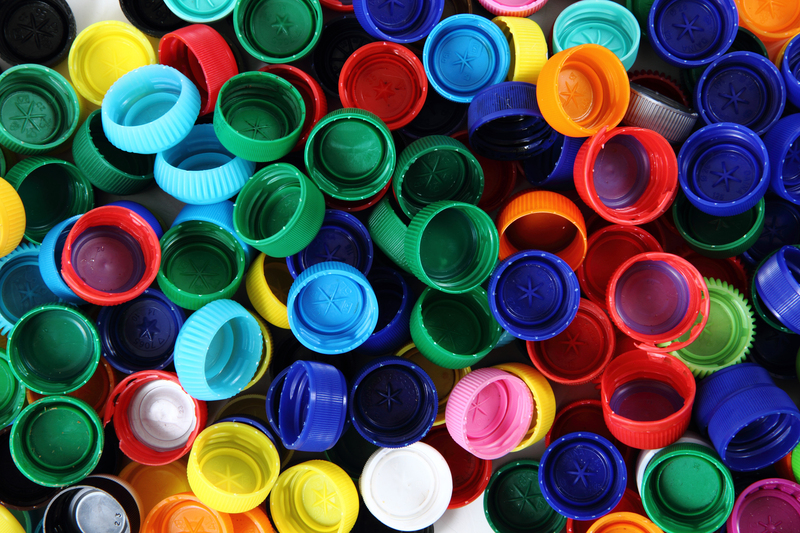What Materials in Pots and Pans Can Be Recycled?
Kitchen cookware doesn't last forever. Whether it's a scratched-up saucepan or a dented frying pan, the day comes when it's time to say goodbye. But instead of tossing old cookware in the trash, have you ever wondered: What materials in pots and pans can be recycled? Knowing which types of cookware can be recycled is vital for eco-conscious households seeking to reduce waste and support sustainability efforts. This all-encompassing guide explores the recycling possibilities for various cookware materials, tips for proper disposal, and creative ways to give your pots and pans a second life.

Understanding Cookware Materials
The vast majority of pots and pans are made from various metals or have special coatings, each with its unique properties and recyclability. Before tossing out that old pan, it's crucial to know its composition. Here are the most common materials found in kitchen cookware:
- Stainless Steel
- Aluminum
- Copper
- Cast Iron
- Nonstick (Teflon, ceramic, enamel-coated)
- Glass
Let's peel back the layers on each of these materials and discover which ones are recyclable.
Stainless Steel: A Top Contender for Recycling
Stainless steel is a popular cookware material because it's durable, rust-resistant, and easy to clean. But when it reaches the end of its lifecycle, can stainless steel pots and pans be recycled? The answer is a resounding yes!
- Recyclable Status: Highly recyclable. Scrap yards and recycling centers depend heavily on stainless steel due to its value and widespread use.
- Preparation Tips: Before recycling, remove any plastic, rubber, or wooden handles. Clean off food residue, but it doesn't have to be spotless.
- How It's Recycled: Stainless steel is melted down and re-formed into new products -- anything from new cookware and appliances to building materials.
Stainless steel cookware recycling is widely available at local recycling centers or metal scrap yards. Some municipalities offer curbside collection for metal items, but it's always best to check their policies first.
Aluminum Pots and Pans: Lightweight and Widely Accepted
Aluminum is cherished for its light weight and excellent heat conduction. From frying pans to stockpots, aluminum cookware appears in almost every kitchen. But is aluminum cookware recyclable? Absolutely!
- Recyclable Status: Aluminum pots and pans are recyclable at most scrap metal and recycling centers.
- Preparation Tips: Remove non-metal attachments such as handles and lids. Rinse out food remnants and let the cookware dry.
- How It's Recycled: Aluminum is melted and molded into new cans, automotive parts, and even new cookware.
Remember, aluminum is a valuable recyclable -- it saves up to 95% of the energy it takes to produce new aluminum from raw ore. So, proper aluminum cookware recycling makes a significant environmental difference.
Copper Cookware: Valuable and Recyclable
Copper pots and pans are prized for their incredible heat conductivity, but copper is also one of the world's most valuable metals for recycling. Scrap metal dealers and recycling centers will happily accept copper cookware, though there are some considerations:
- Recyclable Status: Copper pots and pans are recyclable, whether they're 100% copper or copper-bottomed.
- Preparation Tips: Remove any attachments that are not metal; separate the copper if possible. Copper mixed with alloys may be sorted differently.
- How It's Recycled: Copper is melted and reused in electrical wiring, plumbing, and various new metal products.
If you're wondering what pot and pan materials can be recycled for money, copper ranks among the top choices.
Cast Iron: Hefty but Highly Recyclable
Cast iron skillets and Dutch ovens are beloved for their sturdiness and lifespan. While many people restore or upcycle cast iron, there may be times when recycling is the best choice. Fortunately, cast iron cookware is fully recyclable.
- Recyclable Status: Scrap yards and recycling centers eagerly recycle cast iron pots and pans.
- Preparation Tips: No need to scrub spotless -- a quick rinse is enough. Detach any removable parts that are not metal.
- How It's Recycled: Cast iron is melted and incorporated into new metal products, structure supports, or tools.
Cast iron is heavy, so always check with your local recycler or scrap yard to ensure they can accommodate large items.
Nonstick Cookware: A Recycling Challenge
Nonstick pans (including Teflon(R) and ceramic-coated cookware) offer easy food release and simple cleaning. However, these pans present one of the biggest recycling obstacles. Can nonstick pans be recycled? The answer depends on their composition:
- Traditional Teflon (PTFE) Coated Pans: The nonstick coating often prevents recycling in regular metal streams. Some specialty recyclers can process them after the coating is removed.
- Ceramic-Coated or Ceramic Nonstick: These are sometimes accepted by facilities that handle ceramics, but more often, the metal parts are stripped for recycling while the coating is discarded.
- Enamel-Coated: The metal underneath may be accepted at some scrap yards, but the enamel coating usually isn't recyclable.
Tip: Contact your local recycling center about nonstick cookware recycling. Ask if they accept nonstick-coated pans -- some have the capability to process them, while others do not. If not, consider upcycling or donating if the pans still perform satisfactorily.
Glass Cookware: Limited Options
From Pyrex dishes to glass roasting pans, glass cookware is common, but is glass cookware recyclable? Sadly, most cooking glass -- especially those designed to withstand high temperatures -- cannot be recycled in standard glass recycling programs.
- Tempered Glass: Glass cookware is formulated differently than bottles or jars. Its structure can contaminate other recycled glass streams.
- Special Recycling: Some cities accept tempered glass at specialized facilities. Contact your municipality for options.
- Alternative Disposal: Donate, repurpose, or dispose of in general waste if no other solution is available.
Always double-check with your local recycling provider before attempting to recycle any glass cookware, as policies vary widely.
How to Prepare Your Pots and Pans for Recycling
Once you know which materials in pots and pans can be recycled, preparation is the next critical step. Proper preparation ensures items are accepted and handled safely at recycling plants or scrap yards. Here's a straightforward guide:
- Remove non-metal attachments: Handles, lids, knobs, and covers made from wood, plastic, or silicone should be detached unless the recycler specifies otherwise.
- Clean the cookware: Remove food residue, grease, and burnt-on bits. They don't need to be pristine, but cleanliness helps the recycling process.
- Sort by material: Separate aluminum, stainless steel, copper, and iron. Mixed metals can confuse recycling operations.
- Bundle small items: Gather smaller pots and pans in a box or bag to prevent them from getting lost or causing issues on conveyor belts.
- Contact your recycler: Call ahead to ensure your nearest recycling center or scrap yard accepts cookware, and learn about their requirements.
Where to Recycle Pots and Pans
Finding a recycling home for old cookware is easier than you might think. Try these options to ensure proper disposal of your pots and pans:
- Scrap Metal Yards: Scrap dealers love metal cookware, especially valuable metals like copper and stainless steel.
- City Recycling Centers: Many municipal drop-off points accept metal cookware or have periodic collection days for household items.
- Curbside Collection: Some recycling programs allow you to place metal pots and pans in the recycling bin. Check local guidelines carefully first.
- Specialty Collection Events: Electronics and appliance collection events sometimes include cookware. Check city calendars.
- Cookware Brands/Stores: Some companies and retailers offer "take back" programs to collect and recycle old cookware.
Creative and Environmentally Friendly Alternatives
If recycling isn't possible due to coatings or local restrictions, don't despair. Here are some creative ways to reuse or repurpose old pots and pans:
Alternative Uses for Old Cookware
- Planters: Transform deep pots and old pans into quirky, industrial-style garden planters.
- Storage: Use pans to store tools, art supplies, or pantry items. Mount pots for unique wall storage.
- Decor: Paint and hang lightweight pans as rustic wall art for a unique kitchen accent.
- Bird Baths or Feeders: With a little creativity, you can design feeders and baths for your garden birds.
- Donation: If still in usable condition, give your old cookware to shelters, thrift stores, or community kitchens.
Remember: Repurposing keeps materials out of the landfill and extends their useful life.

FAQs: Recycling Pots and Pans Materials
Can coated cookware be recycled?
Generally, nonstick and enamel-coated pans cannot be recycled in regular metal streams due to their coatings. Check locally for special collection events or metal recyclers who can strip the coatings.
Will my recycling bin accept pots and pans?
Most curbside recycling programs do not accept cookware due to material mix and size constraints. Bring your items directly to a recycling center or scrap yard for best results.
Is it better to donate or recycle cookware?
If the pots and pans are still usable, donate them first -- this is always more sustainable than recycling. Only recycle items that are broken or beyond repair.
Do I get paid for recycling metal cookware?
Scrap yards often pay for valuable metals like copper and, to a lesser extent, stainless steel and aluminum. Payments depend on quantity and current market rates.
Sustainable Kitchen Choices: The Bottom Line
Properly disposing of cookware is an essential step toward a greener kitchen. By knowing what materials in pots and pans can be recycled, you ensure that valuable resources are given a second life and that landfill waste is minimized.
Stainless steel, aluminum, copper, and cast iron are the most commonly accepted recyclable cookware materials. Nonstick and glass cookware, however, feature significant challenges and should be checked with your local facility for recycling options -- or creatively repurposed when possible.
Take the time to prep your old cookware for recycling, seek out your local drop-off points, and consider giving pans a new purpose before parting ways. Every small effort helps build a cleaner, more sustainable environment!
Looking for more eco-friendly kitchen tips? Subscribe to our newsletter for guides on sustainable living, waste reduction, and recycling best practices!



